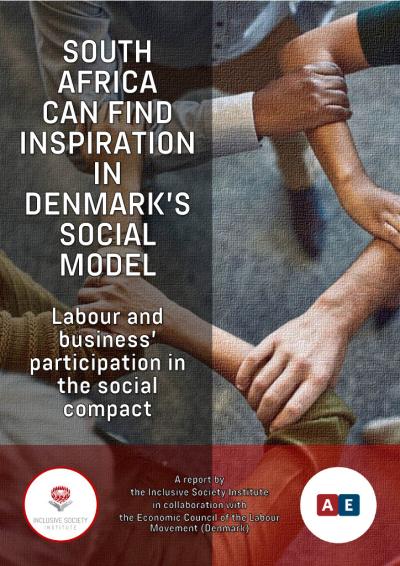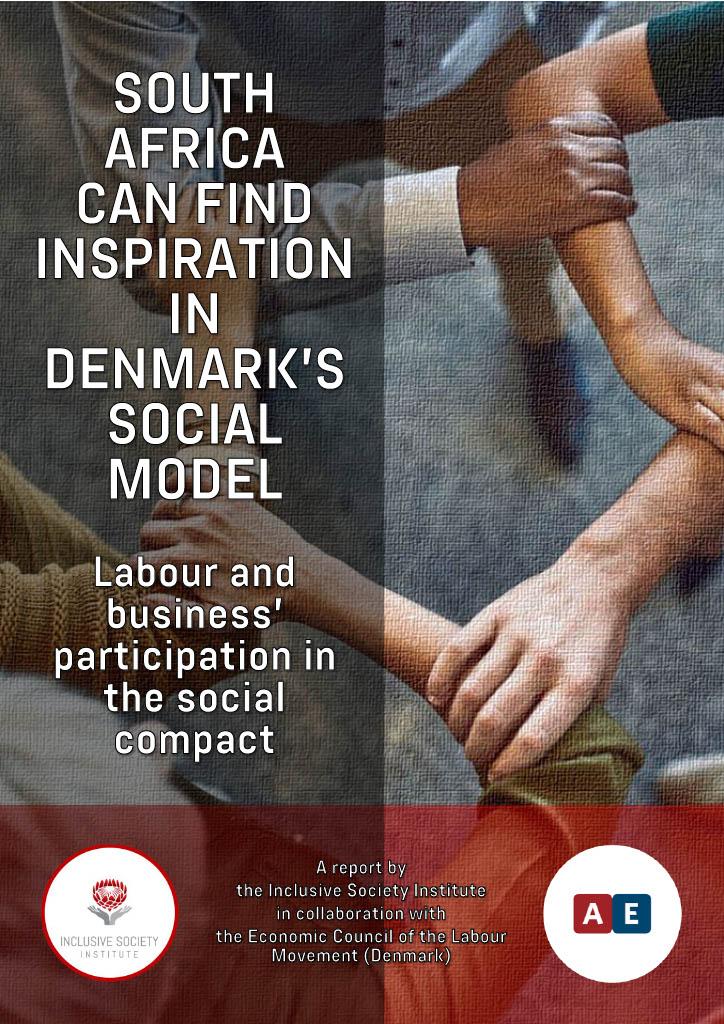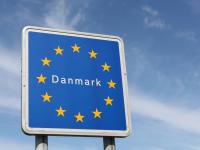Kontakt
South Africa can find inspiration in Denmark's social model
This is a collaboration with the Economic Council of the Labour Movenment (DK) and Inclusive Society Institute (ZA). In this report, we describe the Scandinavian social model, with a special focus on Denmark; and we sketch out how South Africans could take inspiration from the organisation of the Danish society.


lntroduction
In his 2018 State of the Nation Address, President Cyril Ramaphosa floated the idea of formulating a written Social Compact (Presidency, 2018). The aim is to have the alliance drive the solutions to the country's most pressing problems, which pivot around South Africa's flailing economy. Together they will have to tackle record levels of unemployment, widening wealth inequality, deep-rooted poverty and an economy struggling to gain traction.
For the Social Compact to deliver successful solutions, the relationship between those involved must be underpinned by cooperation, trust and respect. Whether these characterise the current relationship between Business and Labour, is doubtful. 0n its part, Labour is quick to threaten with strike action when their demands are not met. Recently, these aften included double-digit or above-inflation wage increases (Mkentane, 2022).
Business, on the other hand, aften blames stringent labour legislation as an obstacle to expanding the labour force.
lt's a hostile relationship (lsraelstam, 2022). This is evident by a recent statement released by the country's largest trade union, Cosatu, in which they called for nationwide strike action. It described the protest as a 'pushback and a response by the workers to the ongoing class warfare directed at them by both public and private sector employers' (BT, 2022a).
South Africa's Social Compact is clearly flawed at a time when the country requires cooperation the most. Labour will have to navigate its stance on how to strengthen its relationship with Business, as Business will have to do with Labour, if the alliance is to deliver any meaningful results.
To this end, this article looks to the Danish social model to draw same inspiration on how to build inclusive growth within the framework of a social compact aimed at addressing the serious challenges confronting the present-day South African economy.
The Scandinavian labour markets have for many years been able to balance the aims of high prosperity and employment with the aims of low poverty and equality. They have found a way to combine economic dynamism with general economic security.
This is in large due to a well-functioning collective bargaining system, a generous public welfare system and a strong social safety net, combined with flexible employment regulation. These features are the results of fortunate circumstances and lang historical struggles, which cannot easily be replicated by other countries. But still, the Scandinavian model for social progress can inspire other countries in their search for the right social and economic balances.



